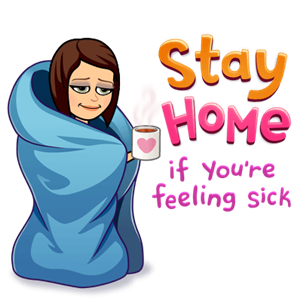NURSE'S CORNER
Please check this page often for the latest news on keeping your children healthy and safe. Here, you will find information on school health policies and all school-required medical forms.
The school nurse's goal is to reduce health-related barriers to learning. We strive to create a healthy and safe learning environment for all students.
Athletic Information
Athletic forms can be found by clicking here
Athletic forms can be emailed to: bhsathleticforms@boontonschools.org
Medication Polices
Every School Year, New Forms:
New medication administration forms are required every school year. Each medication order must be dated after July 1st of that school year.
• If your child is required to take medication during the school day, the medication must be kept and taken in the health office. ALL medication given at school, including prescriptions and over-the-counter medication, requires a physician/provider's signature and parental permission to administer it.
• Please note that no new medications will be accepted without the proper Medication Administration Form on file. Signed forms can be returned to your student's building office via email, fax, or hard copy.
• All medication must be dropped off by a parent or legal guardian. It must be received in its original pharmacy container with a current pharmacy label that states the student name, medication name, dosage, and time to be administered.
• Non-prescription medications must also be in their original packaging or container. School staff are not permitted to administer unlabeled medication.
Disposal of Medications:
• If medication (prescription or over-the-counter) is sent to school for your child’s use during the school year, it must be picked up before the end of each school year. According to district policy, our school nurses will dispose of any medication not picked up correctly. It will not be carried over to the next school year.
Immunization
Immunizations Requirements
As per New Jersey school immunization rules (N.J.A.C. 8:57-4), Immunizations are mandatory for school entrance/attendance, and proper documentation must be provided to the school nurse by the parent/caregiver upon enrollment.
Required Vaccines for Pre-School Students: Required Pre-School Immunizations
**Flu vaccine: All preschoolers must receive the flu vaccine every year. It is state-mandated, and they must be compliant to remain in school.
Required vaccines for students in Grades K through 12: Required Immunizations Grade K-12
NO insurance or NO Health Care Provider: Federally Qualified Health Centers (FQHCs) provide many services.
Guidelines for Illnesses
When considering sending your child back to school, please review the following:

Fever-free (<100 degrees F) for 24 hours without using fever-reducing medication such as acetaminophen or ibuprofen.
Free from vomiting or diarrhea for 24 hours.
Rash: If the cause is unknown, please have your child evaluated by their healthcare provider.
Pink eye: Your child should be examined by their healthcare provider and have clearance to return to school.
Strep Throat: Your child should be examined by their healthcare provider and have clearance to return to school.
COVID or flu-like symptoms: Fever or chills, cough, shortness of breath or difficulty breathing, fatigue, muscle or body aches, headache, new loss of taste or smell, sore throat, congestion or runny nose.
Covid Guidelines:
Students and staff with symptoms* of a respiratory virus should stay home and away from others until:
• The individual is fever-free for 24 hours without fever-reducing medication AND
• Symptoms are improving, which means the individual is no longer feeling ill and able to participate comfortably in educational and other activities as they did before they were ill.
Any remaining symptoms, such as cough or runny nose, are mild or infrequent. Individuals can then return to normal activities, but they should take additional precautions for the next five days when they are around other people indoors. These precautions include:
• Wearing a mask (Not required; Department of Health recommends )
• Taking steps for cleaner air
• Practicing good hand hygiene and respiratory etiquette
• Physical distancing when around others
• Testing for respiratory viruses to determine the next steps, such as treatment.
Guidelines for Injuries
Injuries: If a student has an injury that causes continuous discomfort, they should only attend school once a doctor checks the condition or it improves. Injuries that interfere with class participation need medical evaluation. A physician's excuse is required if participation in physical education classes is not recommended.
Orthopedic Injuries: If your child sustains an orthopedic injury that requires crutches or other orthopedic devices, documentation from your healthcare provider is needed to allow entry back into school. Restrictions to activities should have a beginning and end date.
Stitches/staples: Students who return to school with stitches should provide a written note from the doctor indicating that the child may return to school, including any restrictions on physical activity.
Surgical Procedures: Any student who returns to school after a surgical procedure requires a note from their healthcare provider stating that the student may return to school and list any restrictions on activity.
Pain Medication: Any required pain medication (including over-the-counter) MUST be brought in by a parent/guardian and accompanied by orders from the physician. Regardless of age or grade, no student may carry or self-administer pain medication.

